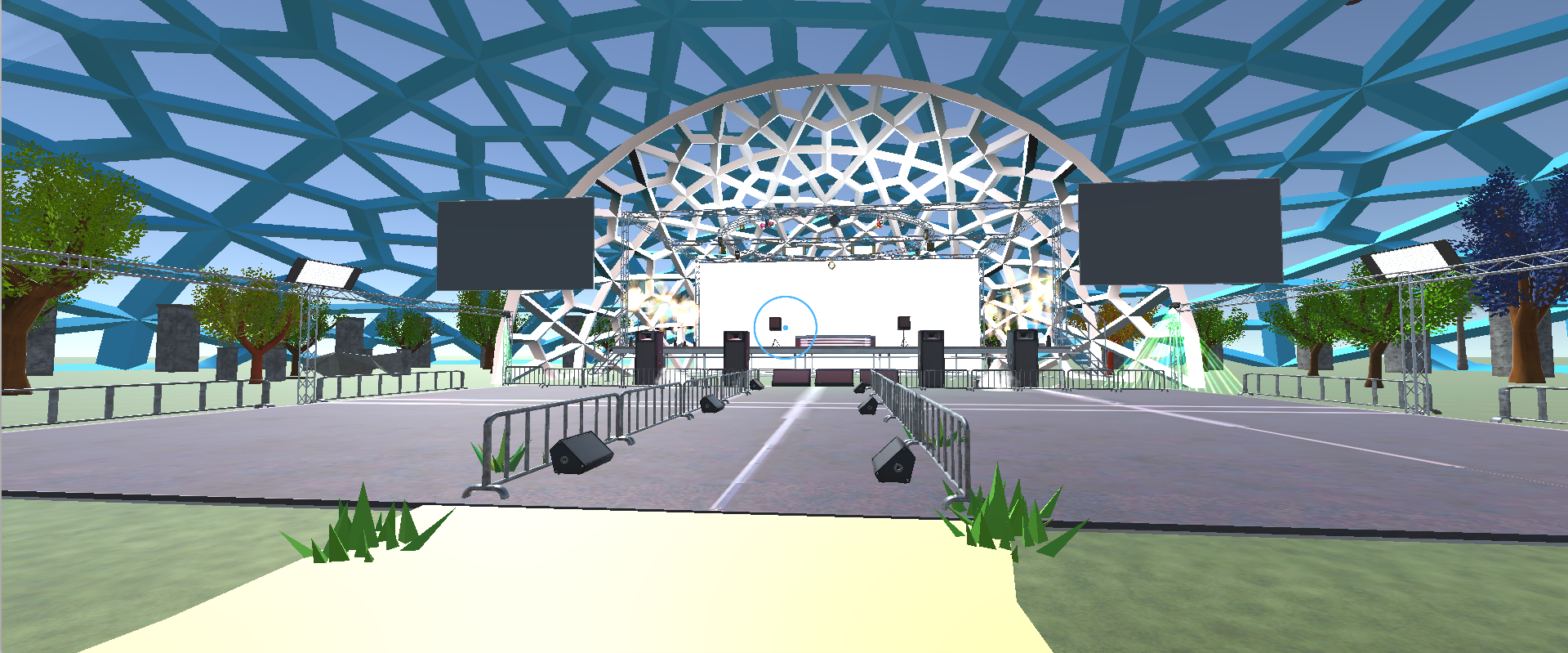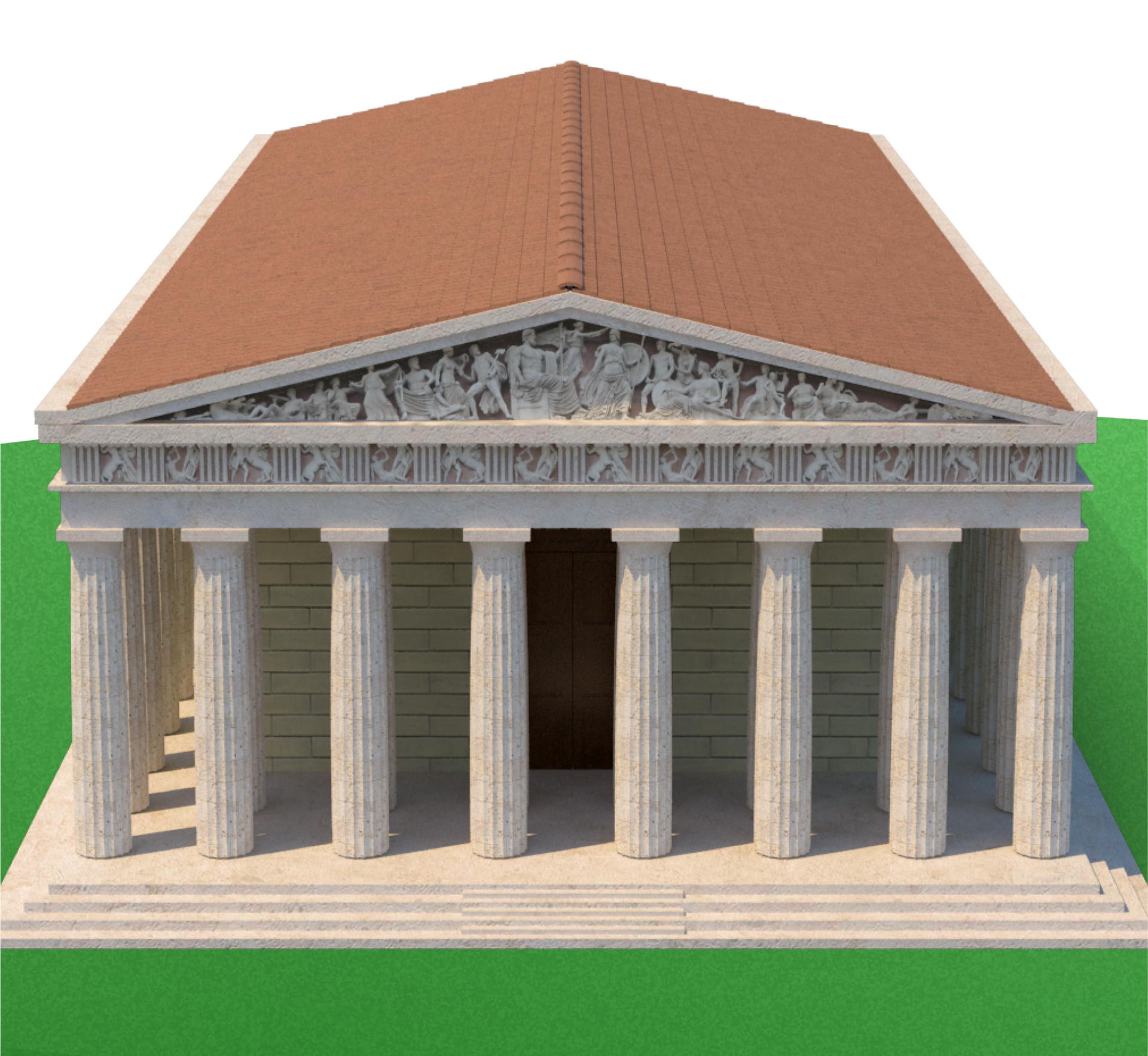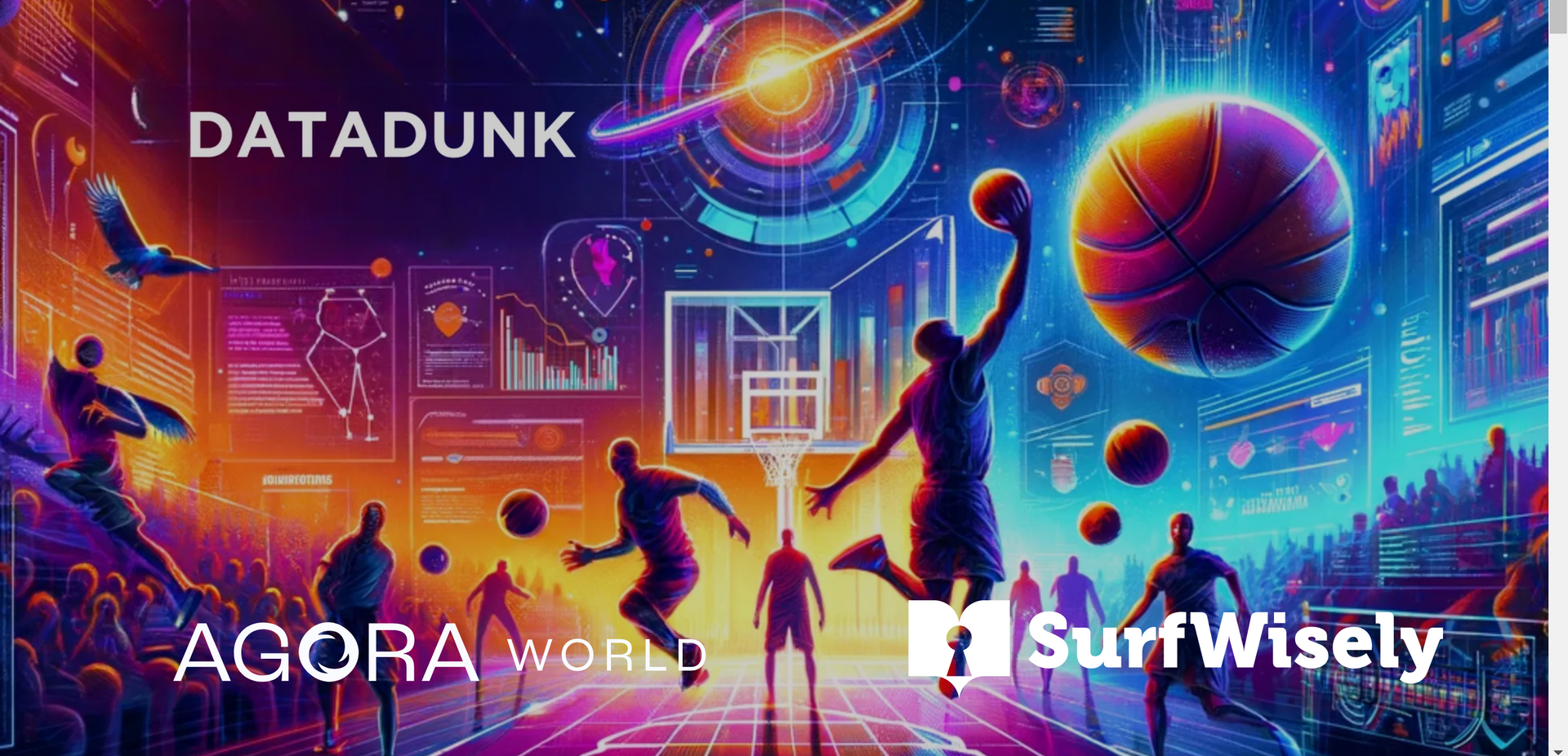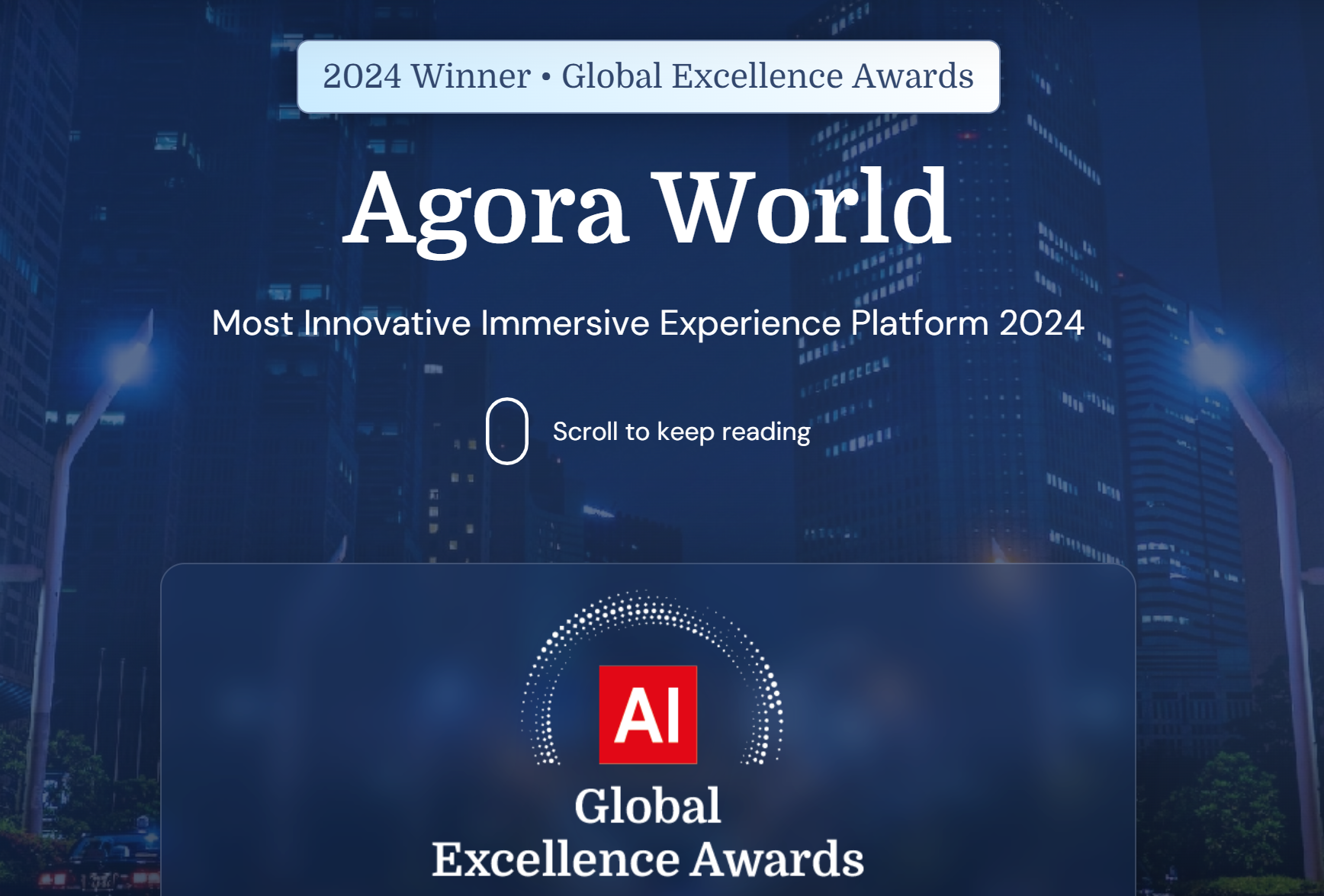
"Agora World’s mission is to democratize metaverse creation. Buzzwords aside, we aim to make online social experiences more immersive and easier to create"
Agora World’s mission is to democratize metaverse creation. Buzzwords aside, we aim to make online social experiences more immersive and easier to create, while empowering creators to forge their own path. To that end, we’ve been working since Oct 2020 to build a platform and tools capable of achieving those goals. Just a year in with bootstrapped funding, we’ve created an app for Windows and Mac capable of allowing anyone to create their own customized 3D social event with no code or technical expertise needed. Looking towards the future we have much more we want to accomplish, so the purpose of this article is to let anyone interested know what we are working on, why we are working on it, and how they can help.
Our Progress So Far
For a detailed overview of what we built in our first year, please take a look at this link.
To summarize, we’ve built a self-updating downloadable app for Mac and Windows computers using the Unity engine, and a standard cloud hosted backend. With this app “event hosts” can customize their own 3D event based on a “world” template, placing images or videos with descriptions and hyperlinks into slots in the world (no coding required, as easy as setting up a Facebook profile). “Attendees” can join events via an “event code”, loading the customized 3D world and allowing you to easily move around the world via a customizable avatar. Spatial voice chat ensures that you can fluidly move between conversations just like you would at an in-person gathering, while profiles allow you to share info about yourself such as interests and social media links. Currently we support up to 50 people socializing like this in a single event instance, and if more people join we automatically generate additional instances (up to 20,000 simultaneous attendees). Our World SDK allows us to upload any Unity scene as a world template in minutes, and we’ve already created several high quality worlds.
During our private beta, we’ve run over 40 events, from a career fair of 200+ people to art galleries, conferences, meetups, and more. Every month we’re adding more subscribers.
What We Are Building
World SDK
Metaverse Interoperability
Browser Access
3D Interactable Objects
Plugins
Creator Economy
XR and Improved Social Immersion and Tools
Education
More
We want to empower creators to build the metaverse they envision, not only our vision of the metaverse. For that reason, a public open source release of our World SDK (Software Development Kit) is one of our highest priorities. With it, anyone will be able to upload a Unity scene as a world template. This means uploading not only 3D environment art, but also all of the built-in Unity engine features such as physics, custom shaders, lighting, and more. Additionally, we’ll be able to add unique code components for more complex creation, such as portals and “grabbable” objects. The SDK also integrates with our event layer, allowing event hosts to further customize a world without code.
The open sourcing of the World SDK code is important and not one we’re taking lightly. With it, we’re essentially creating a metaverse world format that anyone can use for free, even to speed up creation of their own metaverse browser, or provide their own metaverse world hosting. We’re willing to do this because we believe the metaverse should be open (more on that later), and think the World SDK will ultimately benefit from it. Initially the World SDK will be the only part of our code that is fully open source, but we’re interested in the future possibility of open sourcing our API and app code. We can’t commit to this though for reasons such as security and 3rd party plugins that we don’t have the right to distribute. Currently, we’re thinking about our app as a metaverse browser, and the World SDK as an open source standard format for metaverse creation.
As a last note, we’ve chosen Unity as our engine of creation for a number of reasons. Unity’s mission is to democratize 3D development, and as the world’s most popular 3D engine they offer a feature-rich editing experience and ecosystem that we want to build upon. That’s not to say we won’t support other engines in the future (for example, one of the areas we are exploring is creation of a light web browser client through something like Babylon.js), but as a small team Unity has allowed us to build at a velocity impossible 20 years ago. Additionally, we think that with the right tooling and educational material, people can go from 0 code experience to building metaverse worlds in very little time (a matter of hours to days, not months). They can do so while building experience with a professional 3D engine, and existing professionals can use the SDK to go that much further. We believe that the metaverse should be built with professional best-in-class tools, and building on top of Unity adds the work of thousands of employees to our small team.
We’re very interested in helping solve the problem of metaverse interoperability. People in one social application should be able to move as a group to another application reliably. We’ve written a couple articles about it. We’re also aware of the Open Metaverse Interoperability (OMI) working group, and looking to become more involved.
That said, we worry standards like OMI will move very slowly, so will be on the lookout for ways to expedite the process. If we end up moving ahead with our own solution, we’ll always be able to build a bridge between that and the eventual standard. Regardless of how we get there, we want to enable people to jump into and out of our application and arrive at a pre-programmed destination based on the link.
The single most common piece of feedback we’ve heard from our sales pipeline and customers is that they’d like the option to access our app via web browser. Although we believe it will be years before content authoring and application quality in-browser will be able to match native compilation, the ease and safety of accessing our application in a browser is an understandable desire (indeed, it’s necessary for certain use cases). So, we are researching the best path to take to enable this.
Unity does offer WebGL export, and Babylon.js (a 3d web engine) offers export of Unity projects. It may make sense for us to create a light client for the browser through one of these (or another) methods. Another method would be through what is sometimes known as “pixel streaming”, where browser users connect to a cloud-hosted virtual computer instance running our app. Although it’s too early to say what we’ll end up doing here, we see multiple paths forward and will be bringing Agora World to the web browser. Our native app for Windows and Mac will continue to be available for people who want the highest quality experience (a strategy that has been proven by Slack, Discord, and Zoom).
Currently, we have a no code slot system for placing custom images, videos, and booths with descriptions and hyperlinks. In 2022, we want to add the ability for further no code customization in the form of 3D interactable objects. Easy upload of 3D models is part of that, but it goes further. We want people to be able to place other interactable 3D objects like portals, grabbable objects, and more all without needing technical knowledge.
On the app side, this probably means a slot system similar to our 2d and booth slots, but we also may implement something more free-form (like an in-world spawn and save mechanism, or a floating miniature of the 3D world). On the World SDK side, this means a library of custom code components that will allow world builders to create richer, more interactive experiences. For example, last year we did a two day hackathon building an obstacle course in our app, and with just a few code components were able to put together fun unique races.
We want to allow any developer with the skills and vision to be able to build on top of what we’re building. We’re putting a lot of effort into developing a social metaverse engine so that others don’t have to. However, there’s no way for us to think of every use case and provide the code functionality needed for each case.
For this reason, we want to develop a plugin architecture to allow any world to run any code, even code not written by us. One approach other platforms have taken is to develop their own special coding systems. As of right now, we don’t want to take this approach, because we want developers to be able to write the native code they’re already familiar with, which comes not only with a much richer library, but also a larger community and existing codebases. We want any code written in C# to be potential functionality in Agora Worlds.
Ensuring security with this path will be more difficult than non-native methods, but we believe the problem is solvable. There are also serious concerns with mobile support. We have much work to do to make sure we can deliver plugins in a safe manner and on every platform. However, we believe that getting this working will be AWESOME, as it will essentially make “modding” the metaverse shareable and 1st party supported via the largest 3D engine in the world.
Creators who make worlds and plugins should have an avenue to share and sell their creations, so that others can use them for their own metaverse experiences. We often contextualize Agora World as “WordPress for the metaverse”, and an easy to use marketplace fits well with that vision. Additionally, event hosts should have more ways to monetize and earn via their events.
We believe Virtual Reality (VR) and Augmented Reality (AR) support are an inevitable part of our roadmap. The only question is timing. Current VR still has a high friction of use, the dominant Facebook platform is very closed, headsets cannot be comfortably used for long periods of time, and the userbase is still small. AR is not yet compelling for consumers, but great progress is being made. Time will see a lessening of these issues, and we’re building with the knowledge that in the long run XR will be a core component of our platform.
In addition to XR, we plan to add other social immersion improvements, from more expressive avatars to better moderation tools. The desired end result is to make group digital communication richer than in-person communication in many ways.
We are passionate about education and see it as an important part of what we aim to create. One of the initiatives we are planning is Agora World hosted education events, bringing in experts in metaverse-related industry to share knowledge with the community. We’re also looking to partner with existing education programs to incorporate metaverse-creation learning. We’re even kicking around the idea of running some of our own courses. In addition to these initiatives, we plan to create educational and clear documentation for our World SDK, and to continue to share our knowledge with blog posts and other formats.
While the above are our main focuses, we’re constantly researching potential improvements and pivoting based on feedback. Some of the other areas we are interested in are decentralized social networking (such as technologies like Mastodon) and crypto (such as DAOs, NFTs, and decentralized community governance). It’s very important that anything we develop adds value to the platform’s users, rather than just for the sake of boarding a hype train. So, we’re keeping our eye on decentralized tech developments but will only implement them if they can help build an open, easy to use metaverse.
Why We’re Building It
We’re building Agora World because we believe anyone anywhere should be able to build anything and socialize with anyone in a highly immersive, meaningful way. Our ethos of 6 core principles drives the decisions we make in pursuit of that goal.
We believe in Democratization, lowering the barriers to creation and putting the power and rewards of creation into the hands of the creators. We believe in Individual Privacy, keeping data tied to individuals as their right, not a fruit to sell for corporate profit. We believe Organizational Transparency is the best way to ensure that organizations stay honest and in alignment with the good of humanity over the good of the 1%. We believe in an Open Community, where creators can make what they think is right without gatekeeping. We believe in helping create Enriching Experiences that make life worth living and leave lasting memories. And finally we believe in Social Connection, improving technology to allow people to form more and deeper bonds online and increasing the connectedness of the global community.
If you’d like a detailed breakdown of our Ethos and Community guidelines, please read at this link.
Help Needed
If what we’re working on gets you excited, we’d love to hear from you. You can reach out at: info [at] agoravr.world
Creating an open, democratized metaverse will not be easy, so we’re actively looking for people who share our values and vision. Our core founding team is Sky Nite as CTO and Ethan Berg as CEO. Each of us is a full-stack in our given domains, so we’re looking to expand our team via force-multipliers.
The first force multiplier needed is dedicated Unity Developers. Experience with other tech like backend is a plus, but the core need is someone who can quickly iterate on Unity side features. For example, we’d love to add more sandbox components to our World SDK, but Sky has needed to prioritize getting the SDK into people’s hands over adding new features.
Another force multiplier is a dedicated Full-Stack/Backend Developer. The ideal person would also have comfort and experience with devops. Our current backend is PHP + MySql (LAMP) so experience with that is preferred, but if the developer is experienced in other stacks and passionate about our mission, it’s not a dealbreaker. The website frontend is mostly WordPress. A dedicated fullstack developer will allow us to more quickly develop API features and scale our product.
The final of our force multiplier roles is a Community Manager. We want to start creating and running our own events regularly on the platform, and want someone who can help onboard new customers and community members. Our community manager will also help keep us tapped in to what people need. Communities are an incredibly important part of what we are building. We think a person fully focused on this will greatly augment what we can accomplish in the next year and improve the experience for all who use the platform.
In addition to these three specific roles, we are open to bright, passionate people who believe they can help us achieve the Agora World mission. We act as an extremely agile company with 1-week modified-scrum sprints, so acknowledge that what we think is the best path today will not be the same as the best path next week. If you think you’d be a valuable teammate, partner, or ally please reach out!
Finally, we are in need of further investors who believe in our vision and want to use their capital to help us achieve it. We’re far from desperate on that end having bootstrapped on angels+friends+family the last year and knowing how to run lean, but more resources will allow us to build faster and reliably secure a growing team.
Conclusion
So, that’s Agora World today, what we’re building, why, and who we need to make it happen. If you support our goals, please reach out to
(info -at- agoravr.world), promote+share this post, and do what you can to ensure an open, democratized metaverse.

Don't Wait.
Build Your Dream World Today.

Don't Wait.
Build Your Dream World Today.
Internet experiences today are flat, un-immersive, and unexciting – and we plan to change that, one visualization and one experience at a time. With Agora World, we're not just changing the world - we're handing you the controls to build your own.
For general & PR inquiries: info@agoraworld.io
© 2024 AGORA WORLD INC. | ALL RIGHTS RESERVED.



